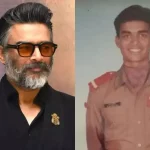The debate surrounding the difficulty levels of various competitive examinations in India often stirs passion among students, educators, and parents alike. The Joint Entrance Examination (JEE) and the National Defence Academy (NDA) exam are two significant milestones for aspirants in the fields of engineering and defence services, respectively. As aspiring candidates gear up for these tests, a common question arises: Is the JEE harder than the NDA exam? This article delves into the nuances of both exams, assessing their content, structure, preparation strategies, and overall challenges to provide a thorough comparative analysis.
Historical Context
The significance of competitive exams in shaping careers in India cannot be understated. Originating from the British education system, these exams have become a cornerstone for aspirants wishing to pursue professional courses in engineering, medicine, and defence. The JEE was introduced to identify capable students for admission into prestigious engineering colleges like the Indian Institutes of Technology (IITs) and National Institutes of Technology (NITs), while the NDA exam was established to recruit candidates for the Indian Armed Forces.
The historical context of these examinations showcases their evolving nature. While JEE has consistently been associated with rigorous academic proficiency needed for engineering, the NDA maintains a comprehensive selection process designed for future leaders in the military. Understanding these aspects helps contextualize the question of which examination is more challenging.
Academic Focus
JEE Exam: An Analytical Battlefield
The JEE, particularly the Advanced stage, is synonymous with immense academic pressure. It primarily tests candidates on:
- Subject Expertise: The core subjects are Physics, Chemistry, and Mathematics, wherein problems tend to be abstract and demanding.
- Depth of Understanding: Questions often emphasize conceptual clarity and analytical problem-solving skills, requiring students to apply knowledge to unfamiliar problems.
For instance, JEE Advanced problems may span multiple concepts in physics or chemistry, demanding not just rote memorization but an intricate understanding of applications in various contexts. Due to its intense focus on problem-solving and critical thinking, it is deemed one of the most challenging entrance exams globally.
NDA Exam: A Holistic Assessment
Conversely, the NDA exam covers a broader range of subjects, which includes:
- Mathematics (300 marks)
- General Ability Test (GAT), covering English, General Knowledge, and Science (600 marks)
While the NDA exam requires a solid understanding of these subjects, the nature of the questions leans more towards being straightforward compared to the intellectual rigor seen in JEE. Moreover, the NDA also assesses candidates through physical fitness and psychological evaluations which include tests like the Services Selection Board (SSB) interviews, where leadership abilities and personal attributes are crucial.
Exam Structure and Demand
JEE Exam Structure
- The JEE is divided into two stages:
- JEE Main: Acts as a screening test with 360 marks.
- JEE Advanced: Final selection for top engineering institutions with a variable score, known for its complexity.
- Duration: The exams demand extensive preparation over a year or more, coupled with professional coaching—making it a long-term commitment.
NDA Exam Structure
- The NDA comprises:
- A two-day written examination (with a total of 900 marks).
- A five-day SSB interview, followed by medical examinations.
- Preparation Timeline: Candidates often prepare for the NDA exam for a shorter period, given the broader subjects and physical testing requirements.
Statistical Data and Research Insights
To bring clarity to the debate, consider the following statistics:
| Aspect | NDA Exam | JEE Exam (Main + Advanced) |
|---|---|---|
| Academic Focus | Broad knowledge: Mathematics, General Ability, English, General Knowledge, Science, Indian Polity | High-level Physics, Chemistry, Mathematics requiring in-depth conceptual clarity and problem solving |
| Exam Structure | Two-day written exam + 5-day SSB interview + Medical Exam | Two stages: JEE Main (screening) and JEE Advanced (final selection) |
| Marks | Total 900 marks in written (Mathematics 300 + GAT 600) | JEE Main: 360 marks, JEE Advanced: varies but more challenging |
| Preparation Time & Difficulty | Preparation often shorter, integrates physical & psychological testing | Requires years of coaching, intense preparation and practice |
| Selection Ratio | About 0.15% (300–400 selected from large no. of applicants) | About 0.7–1% selected from roughly 15 lakh applicants |
| Nature of Assessment | Mix of academic knowledge, physical fitness, personality, leadership, teamwork | Deep academic rigor with focus on analytical and critical thinking under pressure |
The statistics depict that while both examinations have their unique challenges, the acceptance rates highlight the competitive nature of these tests. The JEE’s selection ratio ranges between 0.7% to 1%, which denotes a higher academic pressure due to an overwhelming number of applicants compared to the NDA’s approximately 0.15%.
Case Studies: Success Stories and Lessons Learned
Real-world examples provide insight into the experiences of candidates who prepare for either exam.
Example 1: JEE Aspirant’s Journey
Ravi, a student from a small town in India, dedicated over two years to preparing for the JEE. He enrolled in a coaching institute known for its rigorous curriculum, mirrored previous years’ papers, and practiced daily. Ravi’s experience underscores the extensive effort and discipline required to navigate the complexities of the JEE, which often culminates in burnout and anxiety among aspirants.
Example 2: NDA Aspirant’s Perspective
In contrast, Tarun, an NDA aspirant, balanced physical training with academic studies. His preparation included attending classes for the NDA syllabus while actively participating in physical training sessions to prepare for the SSB interview. Tarun’s story emphasizes that while the NDA exam may seem less academically intense, the holistic nature of the selection process—where physical fitness and psychological evaluations play significant roles—requires a different kind of preparation and dedication.
Challenges and Solutions
Challenges Faced by JEE Candidates
- Pressure and Anxiety: The weight of expectations can lead to high levels of stress.
- Consistency: The need for continual practice and revision can be overwhelming.
Proposed Solutions:
- Mindfulness and Stress Management: Incorporating techniques such as meditation can help manage anxiety.
- Structured Study Plans: Developing a well-structured study schedule can promote a balance between subjects.
Challenges Faced by NDA Candidates
- Physical Training: Many candidates struggle with the physical requirements of the NDA, which can affect their overall performance.
- Team Dynamics in SSB: The need to demonstrate leadership skills under scrutiny can be daunting.
Proposed Solutions:
- Integrated Preparation: Engaging in regular physical activities and joining coaching for SSB interviews can bridge the gap between academic knowledge and physical fitness.
- Mock Interviews: Participating in mock SSB interviews can alleviate anxiety and enhance performance during actual assessments.
Future Trends and Predictions
As educational methodologies evolve, the future of preparation for competitive exams will likely see changes driven by technology and personalized learning approaches.
- Online Learning: The rise of online courses, such as those provided by SSBCrack and SSBCrackExams, offers targeted preparation tools, allowing candidates to focus on specific areas of weakness.
- Data Analytics: Advanced data analytics will help educators understand student performance trends to tailor instructional methods that better meet individual needs.
Conclusion
The question of whether the JEE is harder than the NDA exam cannot be answered unequivocally; it heavily depends on a candidate’s individual strengths, aptitude, and career aspirations. While the JEE emphasizes intense academic rigor and problem-solving capabilities, the NDA exam evaluates candidates through a combination of knowledge, physical ability, and psychological resilience.
For students embarking on these journeys, it is essential to acknowledge their own goals—whether seeking to innovate in the engineering sector or to serve the nation through the Armed Forces. Ultimately, both paths offer unique challenges and rewards, and success in either realm requires determination, preparation, and a resilient mindset.
For those preparing for these competitive exams, resources such as SSBCrack and SSBCrackExams can provide comprehensive study materials, courses, and insights necessary to excel in these demanding processes. Regardless of the chosen field, staying committed to personal growth is paramount.












